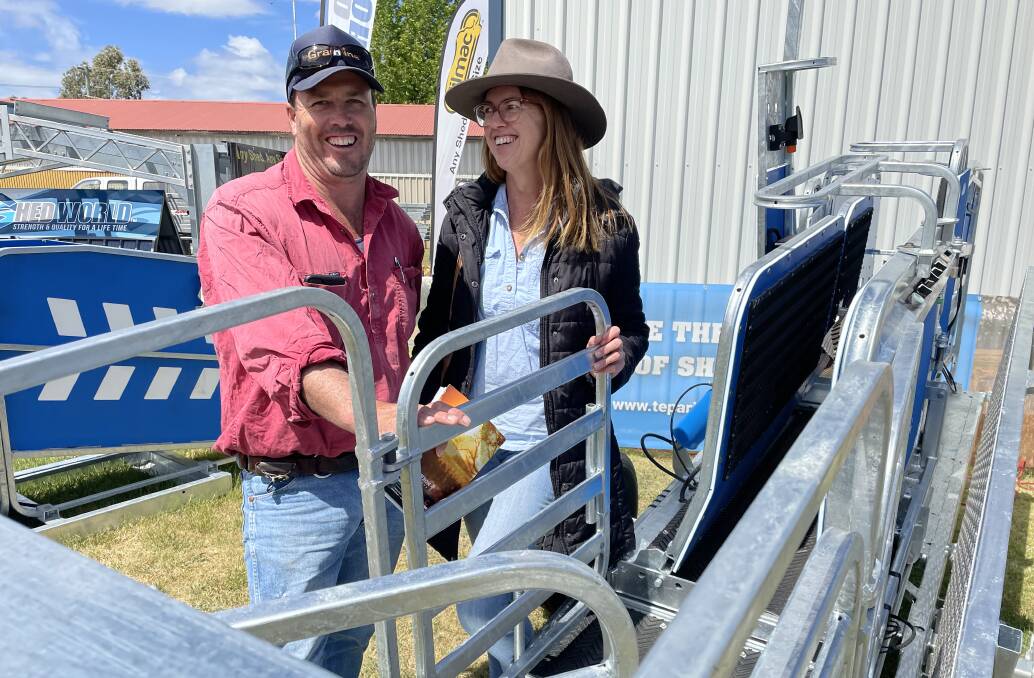
The NSW Sheep and Goat eID Rebate Scheme, which opened on October 3, came just in good time for last week's Australian National Field Days at Borenore - also the event's 70th year.
Subscribe now for unlimited access to all our agricultural news
across the nation
or signup to continue reading
Koorawatha farmers, Ruth and Luke Mullins, run 1200 crossbred ewes and with the upcoming roll-out of sheep and goat electronic identification, they took the opportunity to inspect equipment that was eligible under the rebate.
Mr Mullins said they were keen to value-add their operation by using the eID technology to track certain traits in their flock, as well as how their lambs performed on certain pastures and crops.
"It's phenomenal how they (sheep handling tech) can put it (on-farm data) together and have that info at your fingertips," he said.
The plan was to use that data as a guide on what to plant in the ensuing years with the aim of finishing their lambs faster.
They also were keen to get set up before the deadline to avoid any last minute hiccups, or rush.
"We want to get off the ground before it actually has to be done," he said.
NSW Department of Primary Industries sheep and goat traceability director, Kiowa Fenner, Orange, said the rebate included two funding streams, one being for readers, including handheld readers and panel readers and associated software with a subscription up to 2027.
The second stream was for autodrafters fitted with a panel reader.
"So it must have a panel reader incorporated into the drafter," she said.
"It could be a three-way (auto-drafter), it could be a five-way, it's really up to the individual producer, as long as its an auto, not a manual drafting system and it must be new.
"Second hand is not eligible."
The second stream of funding also included funding for handlers for goats due to the increased work, health and safety risks they posed.
"Producers can claim up to 50 per cent of the cost, or a maximum of $4000 for the hand readers, or up to $11,500 for the auto-drafter and also the goat handlers," she said.
"The goat handler doesn't need an eID panel, that handler being about the need to handle the goats to tag them.
"There has been a lot of questions in relation to 'is second hand eligible?' and no, it's not eligible - it must be new."
She said producers must provide an itemised account, but could claim retrospectively to December 15, 2022.
"That was the day the previous minister launched the mandatory eID in NSW, so we're mindful some people went out straight away and bought stuff knowing this was coming in," she said.
Scott Franklin, Te Pari product specialist, said the rebate was certainly encouraging a lot of producers to look at equipment.
"We've had a fairly good take on handlers and drafters prior to the rebate, but definitely with the rebate coming in it's getting a lot more people to look at utilising this equipment and being able to do a lot more things with the electronic ear tags," he said.
This included individual weight gains, tracking of singles and twins, and how decisions could be made around this information.
He said Te Pari also offered Tru-Test and Gallagher equipment, which could draught on sex, age, pregnancy status, and weight.
Those brands' indicators could also download in a CSV (commas to separate values) format, which was Excel compatible and could be imported to third party software programs such as AgriWebb, Sapien and Stockbook.


